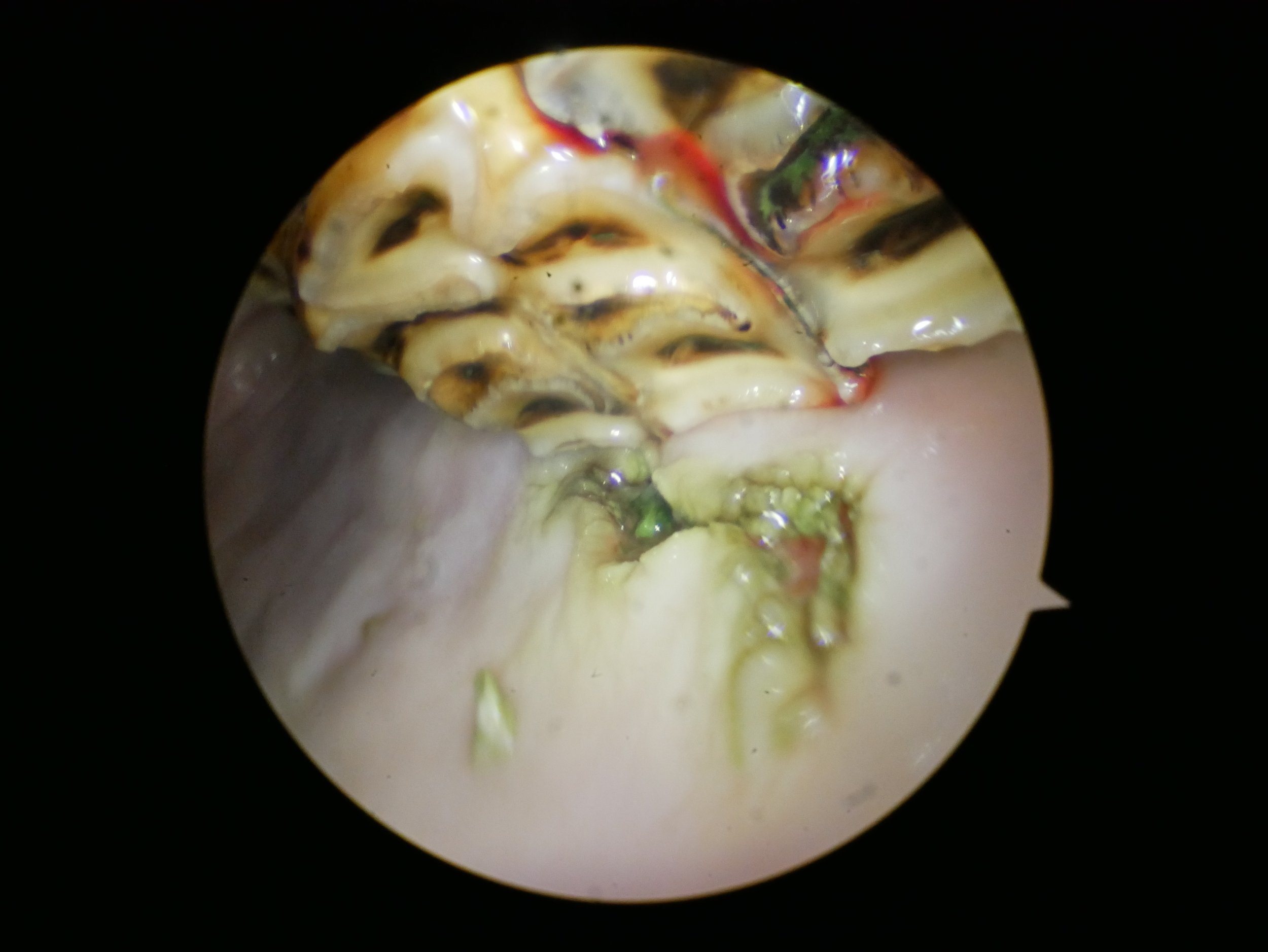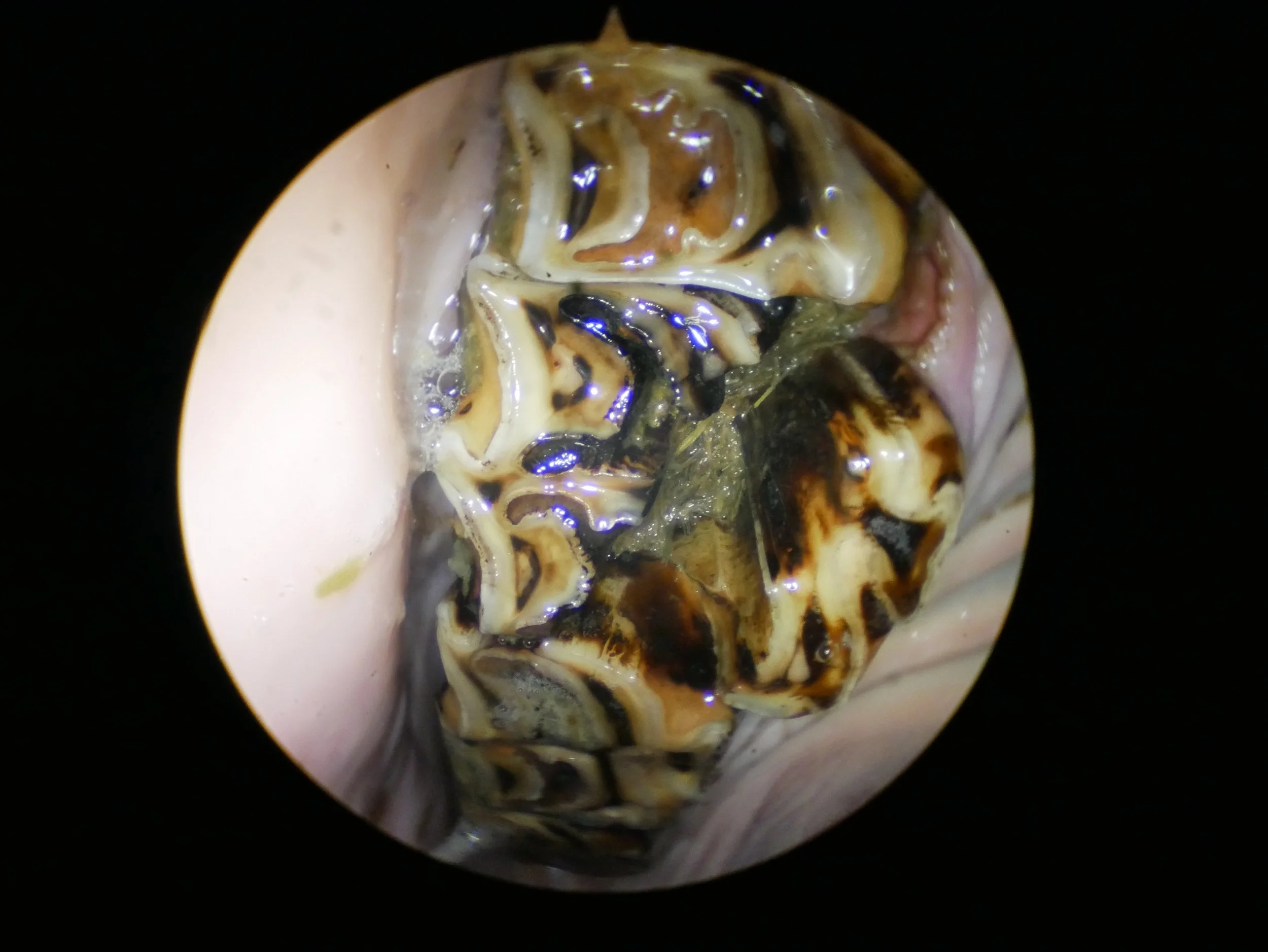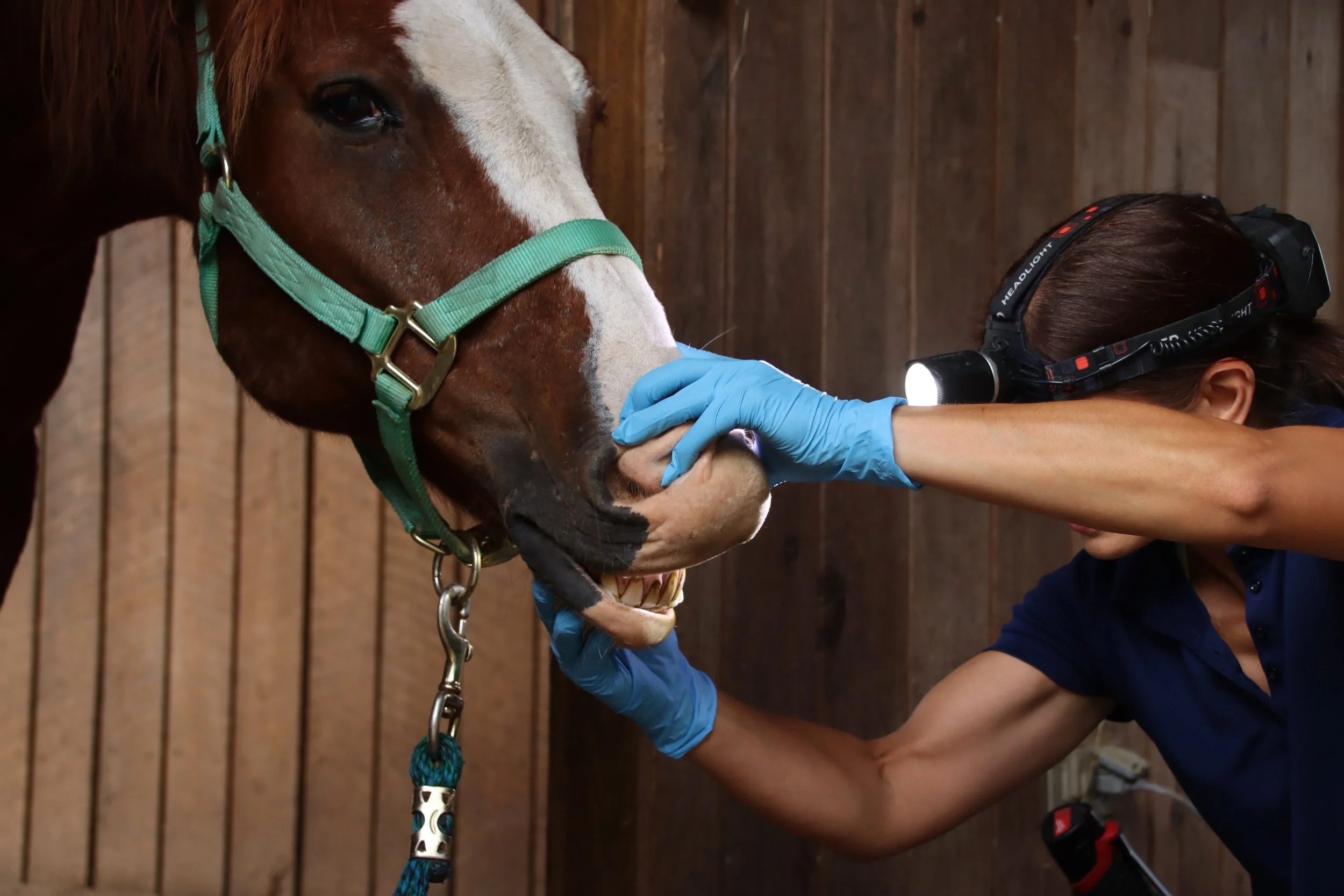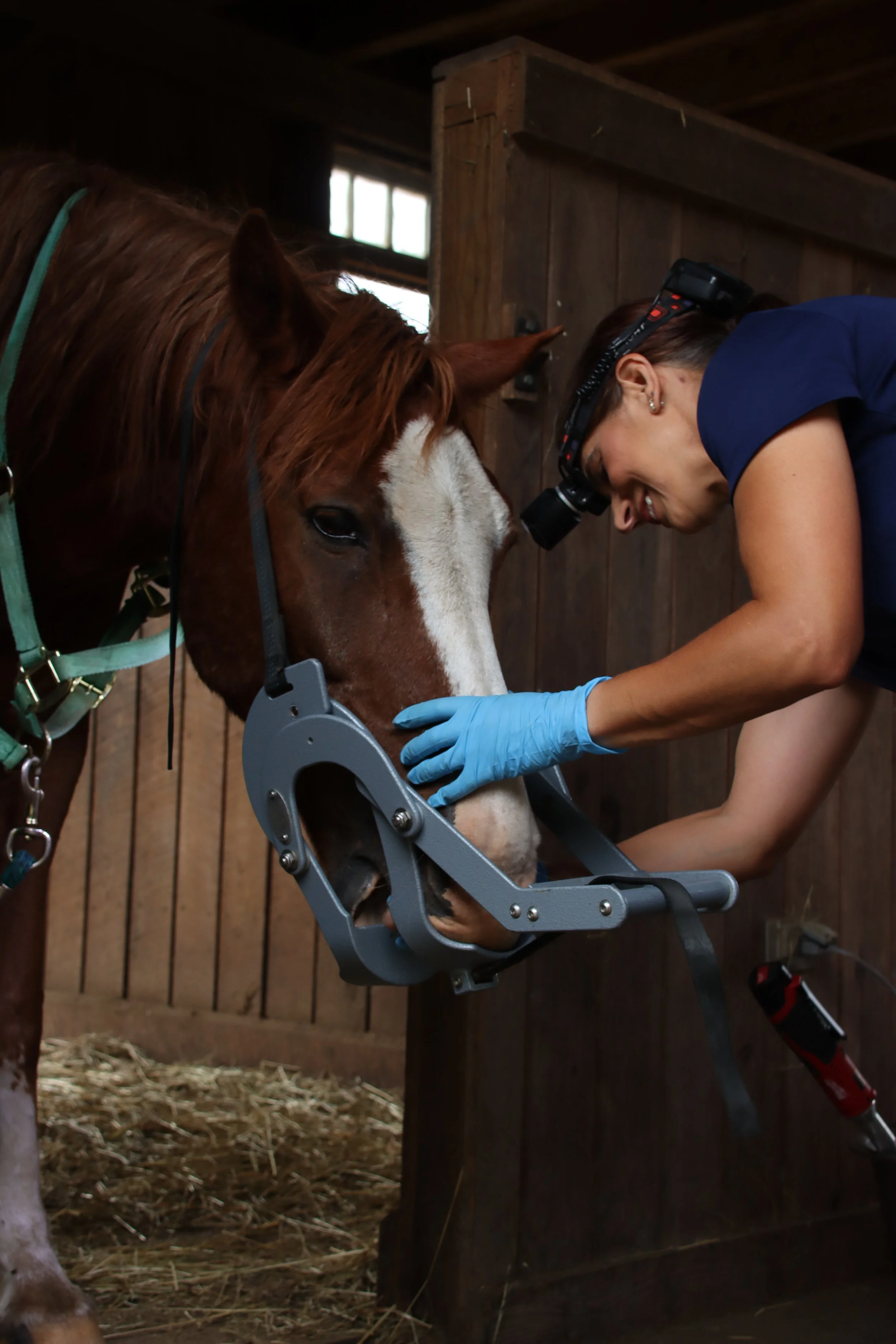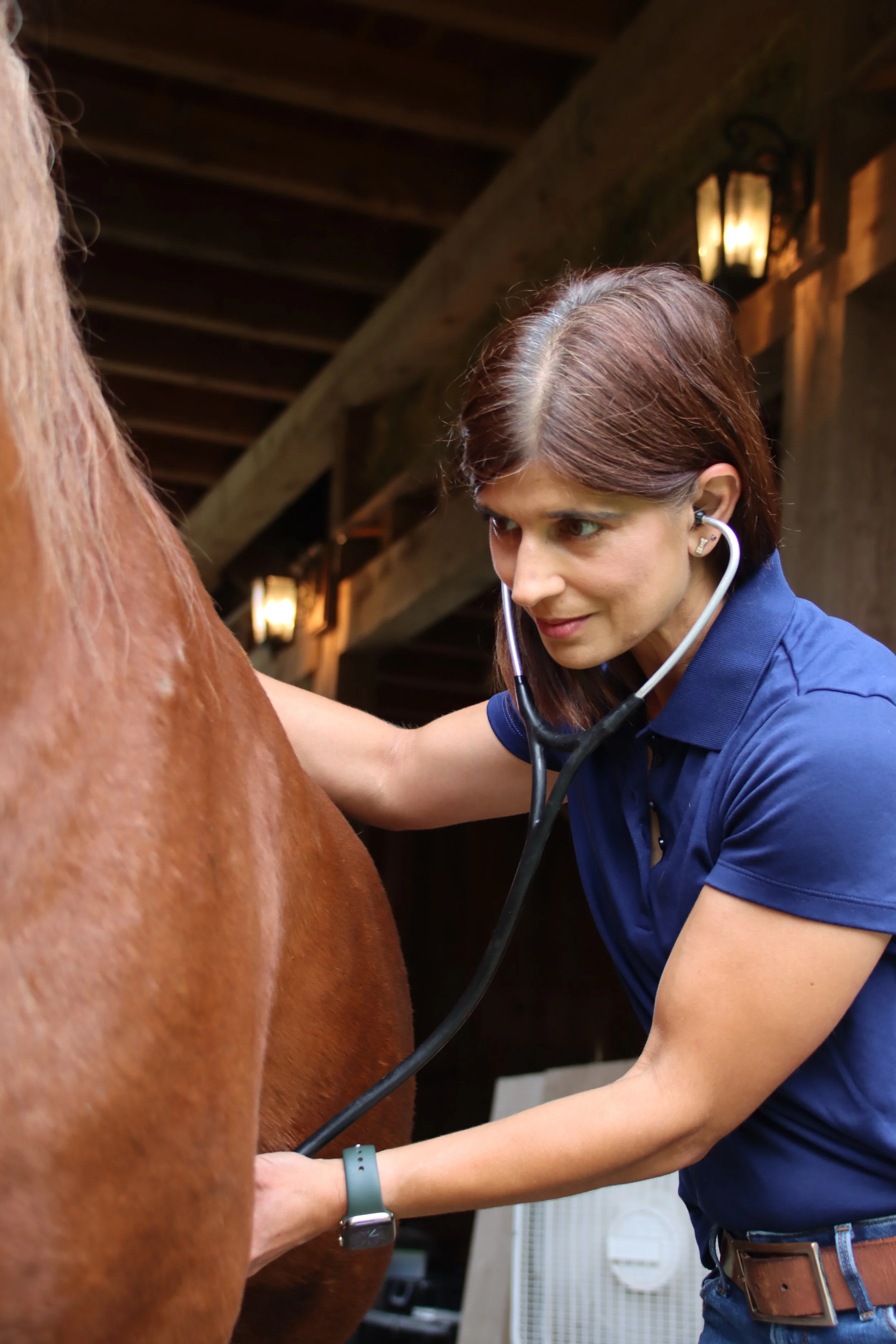The All-Important Oral Exam - Yes, we DO need to “look the gift horse in the mouth”!
When we refer to “equine dentistry”, the images and meanings that come to mind may differ based on an individual horse owner’s experience. For us at Nashaway Equine, dentistry begins, ends, and is guided by an oral exam. Our commitment to offering this key component of equine preventative health care goes hand-in-hand with a fundamental part of our service.
“What” we are trying to accomplish is a thorough examination of the horse’s mouth.
Our goals are:
Determine what is or isn’t looking healthy
The potential source of oral pain
What might lead to an existing or potential infection
What might be causing abnormal contact in the bridle
An explanation for abnormal chewing or dropping feed.
“How” do we accomplish an oral exam?
A full mouth oral speculum, an oral mirror, a light source, and ideally, pressurized water to remove food and debris from the mouth; these basic tools are used in every exam we do.
“Why” does my horse need to be sedated?
To conduct a diagnostic and accurate examination of the mouth, sedation of the horse is necessary.
Few horses are truly “Bad” for dentistry procedures; those that appear less tolerant are often painful in their mouths, teeth, or TMJ. Others may just be frightened or nervous. Even the most well-behaved of horses will be unable to consciously relax the powerful muscles of their jaw to allow a proper exam.
“Who” can perform this service?
Within our equine community, different types of professionals may offer dentistry services. However, only a veterinarian is legally licensed, educated, and insured to administer sedation safely. Each horse is treated as an individual, taking into account their age, comfort, temperament, and general health status. These factors help us determine the appropriate dose and at times, a combination of different types of sedation administered to safely and effectively complete the oral exam.
Once the horse is in an appropriate plane of sedation to complete this exam, we can proceed with any procedures (dental floating, extractions, etc.) as required.
“When” does a horse need an oral exam?
We perform an exam before each and every dental float or other procedure. Things can change quickly in the mouth. An exam might indicate the need to change a treatment plan or help determine how a horse should be floated to achieve adequate occlusion and grind.
An oral exam is a valuable part of preventative care for horses in any life stage.
Horses aged 1 yr – 5 yr: We typically begin performing oral exams after the 1 st year. Given that horses will not have a full mouth of adult teeth until the age of 5 yr., it is important to make sure that their teeth are developing and erupting appropriately as they grow. We also check for wolf teeth, fractured deciduous teeth (or caps), or conformational abnormalities. All of these issues are best diagnosed early on to avoid larger, more long-standing complications in the future.
Horses aged 6 yr – 17 yr: In general, this age group is in their prime both health-wise and athletically. Routine oral exams every 6 – 12 months maintain the status quo, keeping them comfortable and chewing appropriately. This is the time to manage a horse’s oral health for best assurance in a healthy future.
Horses aged 18 yr and beyond: This life stage has arguably undergone the most change in recent history. We now know many horses competing or otherwise athletically active well into their 20’s. The average life expectancy of horses commonly extends into their mid-30’s. Oral exams remain an essential component of maintaining overall health. We need to identify advancing dental and periodontal disease, loose teeth, and fractured or infected teeth as early in the disease process as possible to ward off the many unwanted side effects that can accompany these conditions. Without proper attention, any of the above issues can lead to difficulty chewing resulting in weight loss, choke, or colic.
Investing in your horse’s oral health today is the best way to ensure a longer, healthier life into the future!

